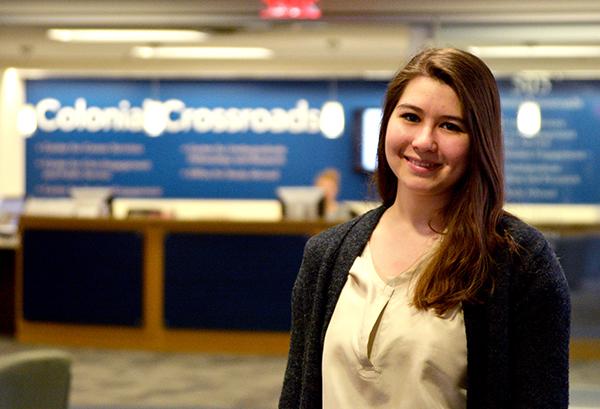When senior Toby Moynihan got back from his semester at a business school in Brazil, he said he had no idea how hard it would be to get credit for the classes he took abroad.
Emails he sent to members of the international business department went unanswered while he was in South America. Moynihan said he still hasn’t received any credit for the courses he took, and his adviser at GW said he’d likely only be able to count six of the 24 credits he completed – what he called a “putrid ratio.”
“It hasn’t been resolved in the slightest,” Moynihan said.
In an effort to ease the credit-transfer process, the Student Association is looking to expand the list of approved classes for students to take abroad, said Student Association Vice President for Academic Affairs Alicia Rose.
Rose has been working with the Office for Study Abroad and the Division of IT since last fall to create an online “portal” for students taking classes internationally, which will help them transfer their credits. Rose, who spent a year in Tokyo, said she hopes the portal can be completed by as early as next fall, and could supplement GW’s existing study abroad website.
She said she hoped expanding the list of approved courses and updating the website portal will streamline a “long process.”
“There is a lot of paperwork involved in transferring credits back,” Rose said. “A lot of time students have to send documents to [GW’s study abroad office] and also the department, then get paperwork from professors abroad and either bring back syllabi or email them.”
Annemarie Marlin Whalen, the vice president for programs and publications at the Forum on Education Abroad, said determining which credits will count from a study abroad program can be a “very complex endeavor.” She said it may be more difficult for students to count credits depending on the country they’re in, or if the program is run by a different university.
“We’re talking not only about courses not taken on the home campus, but we’re talking about courses that are taken in what can be very different contexts,” Marlin Whalen said.
She also said counting credits from a study abroad program is “not just a question of bureaucracy.”
“Students may say it feels onerous, but an institution does want to make sure the curriculum match is accurate and appropriate,” Marlin Whalen said.
Mark Salisbury, the director of institutional research and assessment at Augustana College, said universities can have trouble striking a balance between promoting study abroad and maintaining their own course standards.
“What has happened in a lot of places is they have been really emphatic in trying to increase the participation in study abroad and have been less emphatic in working out all the details so that it is a seamless process for students,” Salisbury said. “That’s part of the growing pains of increasing study abroad participation.”
About half of all GW students study abroad, and more than 350 studied abroad last fall, according to the University’s study abroad office.
Nationwide, about 14 percent of students will study abroad during their time as undergraduates. Most students study in Europe and take courses in science, technology, engineering, math or social science fields, according to data from the Institute of International Higher Education.
Rob Hallworth, the director of GW’s study abroad office, said the office “encourages students” to talk with their advisers about which courses will count before they go abroad. He said staff in the office also regularly meet with undergraduate advisers across GW’s colleges and host an advisory group on study abroad issues for advisers and faculty.
“We want all students who study abroad to have the information they need about their courses and how they will apply to their degree and graduation requirements,” Hallworth said in an email. He declined requests for a meeting.
Colleen Murphy contributed reporting.







